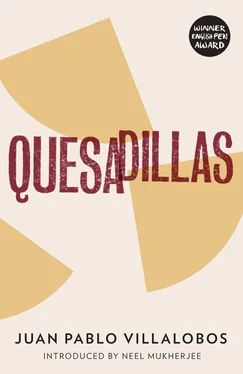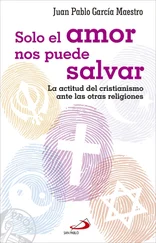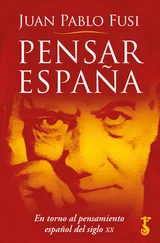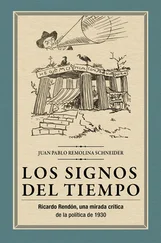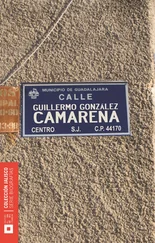Heniuta demonstrated that, like my mother, she too knew how to divert attention away from her husband: she asked us how old we were and the name of the school our parents had chosen, so they’d stop traumatising us. If the possibility had existed, if only in a parallel universe, that my mother might become friends with her new neighbour, it vanished when the Polish woman expressed shock at the fact we didn’t go to a state school.
‘You must be kidding!’ said my mother indignantly, prepared to renounce everything except the possibility, also minute, perhaps in the same parallel universe, that her children might have a brilliant future.
‘I’m sorry. I only said that because your husband teaches at a state school.’
‘And that means we have to settle for second best too?’
Jarek went to a different school from ours, one also run by priests, but by rich priests, not like ours, whose cassocks had threadbare collars and sleeves. Suddenly Heniuta looked straight at me, singling me out with a movement of her chin, and these two simple gestures, plus the phrase that served them as an epilogue, separated me from the rest of my siblings.
‘You’re the same age as Jarek.’ She said it mischievously — did she know how much we liked jerking off?
‘And he can recite poetry! He’s the school champion,’ said my mother, anxious to sell me, as if Heniuta was considering adopting me or my oratory skills could make us equal from a socio-economic point of view.
‘Really? Go on then, let’s hear him.’
So there I was:
‘ Patria, your surface is the gold of maize,
below, the palace of gold medallion kings,
your sky is filled with the heron’s flight
and green lightning of parrots’ wings,
etc.’
And that was how I gained a friend for the first time in my life. Up until then I hadn’t needed friends; I had six brothers and sisters, then I had four. In terms of company and entertainment I was quite self-sufficient. And that was without counting the lousy logistical complications of living on the Cerro de la Chingada: if I wanted to invite a schoolfriend round I had to devise a plan for getting them here and back, plus think about what to do if we ended up having to evacuate them. In any case, I didn’t want to invite anyone back to mine. It was better that way, in fact, because at school I spent my time trying to be invisible, making sure no one noticed I was there, which was the methodology I had adopted to keep myself safe from the bullies, who for some inexplicable reason didn’t like poetry, no matter how anonymous it was.
The two mothers only agreed to stop with their pretence when they saw that their husbands had changed the subject and were now getting bogged down in the muddy terrain of domestic survival technology on the Cerro de la Chingada. Jaroslaw was explaining his work schedule to my father, saying it would be impossible for him to take delivery of the water tanker that would fill their stratospheric cistern with water three times a week. My father replied that we only needed two tankers of water a month and his new neighbour proposed that if we helped him out by opening his door and overseeing the filling up of the cistern, in return he would give us the water that was left over in the tanker for free.
‘We can’t do that, and we don’t need any more water,’ declared my father, robbing us of the much-dreamed-of scenario that a few hateful phrases would disappear from our vocabulary for ever: don’t flush the toilet, turn off the tap, don’t wash it, it’s not dirty, you’ve just had a drink of water, and a lengthy etc, as long and as wide as the River Amazon.
Speaking of rivers and water shortages, in our town we have a ridiculous river, which for most of the year is minuscule, although it stinks to high heaven. It’s where the ranches, the chicken farms and the Nestlé factory all dump their waste, and is the origin of a horrific, pestilential cloud of mosquitoes. In the rainy season it turns into a majestic torrent that keeps the entire population on tenterhooks over the threat of flooding. The river is always at the heart of any political debate, whether it’s for having destroyed another neighbourhood or having caused the latest epidemic of dengue fever.
My mother put on the face she loved to wear every time she suffered one of her regular resounding defeats, and the rest of us resigned ourselves to the prospect of remaining kind of dirty, but it seemed we shone with dignity. After asking my father twice more to see reason — that is, to help him out — Jaroslaw took advantage of the snub to turn it into an insult and leave. He said goodbye with a level of formality inversely proportional to that of his initial greeting, dragging his family behind him.
My father didn’t even wait for the door to close before passing judgement: ‘Three tankers a week, in that house with so many rooms for just three of them … Those people are constitutionally prone to extravagance.’
He was right, it was crystal clear, and we were the opposite: people prone to parsimony.
Despite the disagreement, the next day Jarek knocked on our door to invite me round to his house. He just stood there, a metre away from the door, waiting for me to come out and making it absolutely clear that he would never enter our house again. My mother insisted he come in, have some iced tea, but having been in the shoebox once had been traumatising enough for him.
Jarek showed me his house and I had to try damned hard to act surprised, because instead of surprise what turned my stomach was the disappointment, the anticlimax on realising that our speculations had been wrong: that instead of the ten bedrooms for ten children my father had suggested, it turned out that they were all rooms for sewing in or for playing games in, offices, or a room for watching TV. The ultimate insult was that one of the rooms turned out to be the maid’s. The worst thing wasn’t being poor; the worst thing was having no idea of the things you can do when you have money.
We went into the games room so that Jarek could train me to kill Martians on the Atari. His precise instructions demonstrated the crushing logic the makers of the game had given their machines: if you moved the control to the right the spaceship moved to the right, if you moved it to the left it went to the left, up and down meant the same; if you pressed the button once you shot once, if you pressed it twice you shot twice, and three times, three. The world was ruled by a band of incredibly dull Aristotelians. I didn’t understand where the fun was, other than in verifying that the device always did what you told it to. Was it the paradox of having invented a contraption whose fantasies served to verify the rules of reality?
‘Isn’t all that poetry-reciting stuff embarrassing?’ asked Jarek, without wavering in his manipulation of the joystick.
‘Why?’
‘I don’t know. It’s stupid, isn’t it?’
‘It’s a contest, like football.’
‘But they don’t show it on TV.’
They didn’t show Atari championships on TV either, but so what? Our session of galactic extermination was interrupted by Heniuta, who had brought us each a different afternoon snack: chocolate cake and Coca-Cola for Jarek, and for me a plate with steak, rice and salad, and a lemonade. The truth is, the meal looked quite like the one I’d eaten at home three hours earlier, except with steak instead of chicken and salad instead of beans. I wanted chocolate cake, but before I could complain, Heniuta fired off a nutritional threat.
‘You need to eat properly, you’re too thin.’
I wasn’t hungry, but I still adhered to the philosophy of opportunistic exploitation, which states that one attacks without thinking about it whenever the occasion arises, because the future is like a woman with abrupt mood swings who sometimes says yes, sometimes no, and pretty often hasn’t even got a clue. Despite having been downgraded to the category of pretend large family, there are some things one learns that cannot and should not be forgotten. I ate at the speed I always did at home, and my display of skill impressed Jarek so much that he rewarded me with a look of disgust and gave me his chocolate cake, pity having overcome his appetite. It’s touching that the rich can feel class guilt at such an early age, poor little things. Even so, compassion can quite happily coexist with impertinence.
Читать дальше
